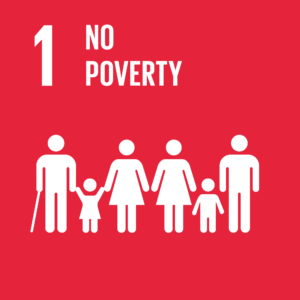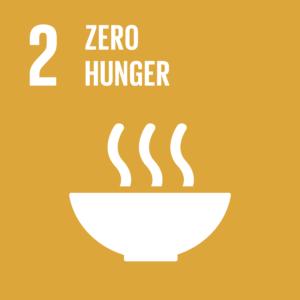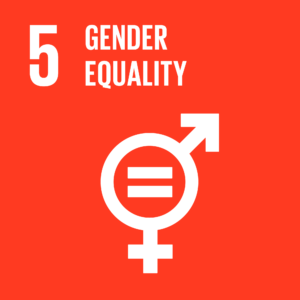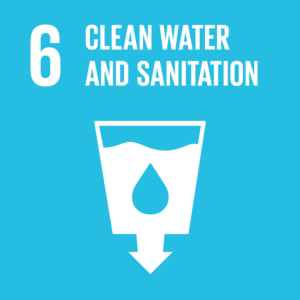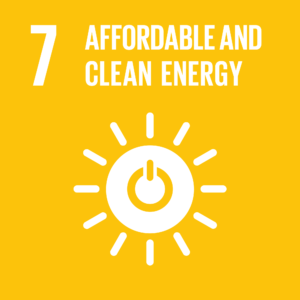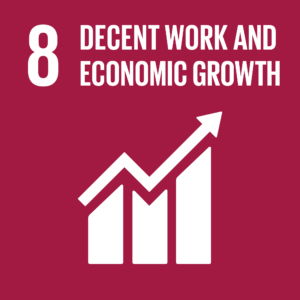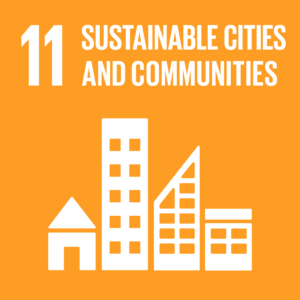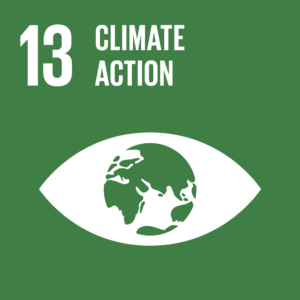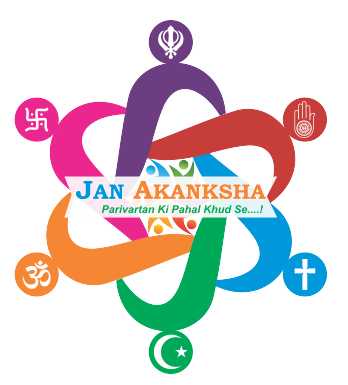GOAL 3 IN ACTION
To ensure healthy lives and well-being for all, we all have to take action. Get inspired here:
THE TARGETS


REDUCE MATERNAL MORTALITY

END ALL PREVENTABLE DEATHS UNDER 5 YEARS OF AGE

FIGHT COMMUNICABLE DISEASES

REDUCE MORTALITY FROM NON-COMMUNICABLE DISEASES AND PROMOTE MENTAL HEALTH

PREVENT AND TREAT SUBSTANCE ABUSE

REDUCE ROAD INJURIES AND DEATHS

UNIVERSAL ACCESS TO SEXUAL AND REPRODUCTIVE CARE, FAMILY PLANNING AND EDUCATION

ACHIEVE UNIVERSAL HEALTH COVERAGE
Achieve universal health coverage, including financial risk protection, access to quality essential health-care services and access to safe, effective, quality and affordable essential medicines and vaccines for all.

REDUCE ILLNESSES AND DEATH FROM HAZARDOUS CHEMICALS AND POLLUTION
By 2030, substantially reduce the number of deaths and illnesses from hazardous chemicals and air, water and soil pollution and contamination.

INCREASE THE SUPPLY OF QUALIFIED TEACHERS IN DEVELOPING COUNTRIES

SUPPORT RESEARCH, DEVELOPMENT AND UNIVERSAL ACCESS TO AFFORDABLE VACCINES AND MEDICINES

INCREASE HEALTH FINANCING AND SUPPORT HEALTH WORKFORCE IN DEVELOPING COUNTRIES

IMPROVE EARLY WARNING SYSTEMS FOR GLOBAL HEALTH RISKS
GET INVOLVED
Social Initiate towards (Feminine) Personal Health & Hygiene

Story behind that...
During the cloth distribution, we donating old wearable clothes, there few clothes which are unusable kept a side, a women asked me if she could take it. I asked her why she needed that old rag knowing well that she only wears sari or suits. She said she would use it during her periods. As the one she was using was very torn and old. For a moment I was silent and sad. I asked her why she didn’t used sanitary pads instead. She said she knew about them but they were too expensive. She would rather use that money for household expenses.
I surprised and realised that the problem in rural and tribal area is such women and girls have never used sanitary napkins, reason being lack of information, accessibility and affordability.
They rely on unhygienic alternatives. In order to provide them an access to sanitary pads, I and our team decided to provide health counseling and mentorship through female health worker & keeping girls in school, informed about their sexual health and supplying affordable sanitary pads to girls who are menstruating.
Report shows that the use of sanitary napkins among Indian women is 48.5% in rural, 77.5% in urban and 57.6% total.
Menstruation is a taboo topic, as bleeding women/girls are mostly considered as impure and dirty in India, like in many parts of the world. Thus most often the menstrual health and hygiene parts get ignored. If reports are to be believed, due to lack of awareness and poverty, thousands of menstruating women/girls don’t use sanitary napkins in India. Instead, they use rags, ashes and husk sand. Thus, incidents of Reproductive Tract Infection (RTI) are very common among these women. The National Family Health Survey (NFHS) 2015-16 report shows that the use of sanitary napkins among Indian women is 48.5 per cent in rural, 77.5 per cent in urban and 57.6 per cent total. Reports say in India, 24 per cent teenagers are forced to skip their schools owing to menstruation.

What is the issue, problem, or challenge?
Have you ever wondered why there is such a large scale school dropout rate of adolescent girls in rural India? Why those girls never see the face of a college and complete their education? Do you believe in giving equal rights to the women of your country and want them to contribute in the development and progress of the country? A progressive society is the one which respects and treats its women with dignity and as equals. But the fact is that for ages women have had to fight for their basic rights. Consider an issue like the menstrual hygiene and health of the adolescent girls and women of India which impacts their self-confidence, dignity, health, education and their economic participation in the work force of the country. The onset of menstruation becomes a cause of concern and embarrassment for them. Instead of celebrating the transformation from a girl to a young lady it becomes their source of downfall in the form of humiliation and an obstacle to their education and financial independence in life.
Menstruation and menstrual hygiene related discussions are still a taboo in the Indian villages and across a large section of the urban society even now. As a result these women and young girls are unaware of the hygiene related practices that they should be adopting and their adverse health impacts on them. Out of the 355 million reproductive age women and girls in India, only 12 percent use sanitary pads during their periods. The rest of them resort to old cloth pieces, husk, ash, dried leaves and grass or newspapers. Shocking! Isn’t it? More shocking is the fact that these unhygienic and unsanitary practices lead to a lot of infections such as fungal infections, urinary tract infection, reproductive tract infections (RTI), cervical cancer etc. which can cause infertility and even death.
Lack of menstrual hygiene management is a major reason for majority of the girls skipping schools during their periods and eventually dropping out at an early age and missing out on their education. With nearly 255 million adolescent girls who are affected in the country, this is a matter of grave concern as it can be detrimental to the country’s image and economic progress. For these poor women and girls who can barely manage one square meal in a day, the luxury of affording sanitary pads is a far-fetched dream. The need of the hour is to improve the quality of life of these poor women and girls by providing them with affordable and easily accessible sanitary pads which gives them freedom and protection from their monthly dilemma and discomfort and allows them to lead a safe, healthy and dignified life which is a basic right of every Indian citizen.
How will this project solve this problem?
Jan Akanksha (Health and Women Welfare Wing) will conduct health programmes in schools which in turn will affect the entire community through training students to act as peer leaders about reproductive health, distribution of sanitary pads to girls in school. Health programmes will be conducted with SHG members to counsel and mentor them about health & distribution of sanitary pads.
Free sanitary napkins will be distributed to rural girls, new mothers and specially girls studying in government schools. As we all are aware that most poor or illiterate girls don’t know about PADS during her period days, So Under this campaign our volunteers will visit rural area/tribal area/slum area/ Govt. School and villages for creating awareness among adolescent girls and women about the significance of using sanitary napkins.
What is a Sanitary Pad?
A sanitary napkin, sanitary towel, sanitary pad, menstrual pad, or pad is an absorbent item worn by a woman while menstruating, recovering from vaginal surgery, for lochia (post-birth bleeding), after an abortion, or in any other situation where it is necessary to absorb a flow of blood from the vagina. Most of sanitary pads are disposable and are meant for single use only and some available with reusable sanitary pads, It comes in different shapes and sizes also.
28 Days Menstrual Cycle

What is Menstruation?
It is a natural reproductive cycle in which the blood from the uterus exits the body from the vagina. It is a natural process that occurs within the girls from the age group of 9-16 years. Taboos and myths about menstruation have always kept the females away from many aspects of social and cultural life. Culturally in many parts of India, menstruation is still considered to be dirty and impure.
Myths related to menstruation in India
Menstrual myths will lead to menstrual taboo. Menstrual myths can cause serious health issues among women. Most popular myths believed to be true in a lot of communities, countries, especially in South Asia. Along with logical/scientific explanations debunk these myths.
Myth 1: A menstrual woman is impure, polluted, sick and is cursed.
Fact : A menstruating woman is not impure. Menstruation is a natural process. A healthy woman will have to menstruate.
Myth 2: Menstruating woman should not enter the kitchen and not even cook. She will make kitchen impure and people who eat food prepared by her will get sick!
Fact : Cooking or entering kitchen will not harm anybody. Woman can cook whatever in the kitchen as usual. At the same time hygiene measures should be followed.
Myth 3: Menstruating woman cannot perform any ritual ceremonies. They have to be forbidden to enter any shrine. Should not let them touch any sacred entity.
Fact : Woman is never and cannot be impure. No human being is impure. Since these practices are followed in most part of the world.
Myth 4: Menstruating woman should be isolated from the house and sometimes even away from the vicinity. As they are considered evil and sick.
Fact : She will need nutritious food during menstruation. Keeping her away from the vicinity might sicken her. Risk of infection, and other illnesses might be caused.
Myth 5: Menstruating woman should not touch pickle, wine, milk or while making them as it will get spoiled.
Fact : There is no such scientific proof to say that menstruation will spoil any food while it is touched or while cooking.
Myth 6: A menstruating woman when she physically contacts a man then she will get pregnant.
Fact : No physical contact like hug, touch or kiss can make woman pregnant. Intercourse will only make a woman pregnant.
Myth 7:Using pads is harmful and not right. Should use only cloths.
Fact : Pads or menstrual cups are essential. As and when you can change the pad. At the same time washing cloths and drying them along with the other laundry is always considered offence and humiliating. So using pad and menstrual cup is essential.
Menstruation myths have deep rooted in our nerves. This has to be taken off uproot these taboos. The new generation should think before following such myths! It’s high time that we woman debunk the menstrual taboo! These myths are disastrous for women’s health at the same time it holds women back in many ways. It is very essential to raise our next generation free from menstrual taboos. At the same time we will have to provide a hygienic and free toilet rooms to change their pads. Educating women on menstruation is very important but educating men is much more important ! Lets be part of educating people to eradicate menstrual myths and taboos.
Menstruation has been a unique phenomenon for the girls over the period years. However, this particular topic has always been surrounded with myths and taboos in India. Why? Why is it a big deal to talk about it in front of people or with the male community of our society? We have been talking about how menstruation is a huge taboo in our country and almost turned a deaf year towards it.
Purpose of the Programme
- To educate girls about Menstruation.
- Let the girls know about the proper diet they should take to maintain menstrual hygiene and how it is important for their well-being and development.
- To clear myths and doubts of the girls related to Menstruation.
- We also conducted mother daughter session where mothers also got to know how to deal with their children at this phase of life.
- Mothers also got to know that they should have an open communication with their daughters on this topic.
- To show the young girls who have not started with their periods how to use and dispose sanitary napkin.
- To teach young women how to make sanitary pads locally.

FAQ :
Ans. : Anywhere between 9-16 years
Ans. : Period is when a woman’s/girl’s body releases tissue it no longer needs. This tissue comes from the uterus, which is where a baby (fetus) can develop in the female body. Every month or so, the uterus lining gets thicker to prepare for a fertilized egg if the woman becomes pregnant. If the egg doesn’t get fertilized, that lining is released from the body as blood through the vagina. This monthly process is called menstruation or a period.
Ans. : 21 to 35 days. It could also be 45 days at the beginning.
Ans. :To calculate menstrual cycle length, you count the number of days from day one of your period up to, and including, the day before the next period starts.
Ans. : Typically 30-50 ml blood is lost during periods. If the blood lost is more than 80 ml, then you should visit your doctor.
Ans. : Normal menstrual bleeding can last from 2-8 days. Heavy bleeding occurs at the start of the period. However if heavy bleeding persists for over 4 days, do visit a doctor.
Ans. : Heavy bleeding is when you are changing pads every hour and see too many blood clots in your pad. If this happens, visit your doctor immediately.
Ans. : No, It is not. This blood was meant to nurture the fetus therefore by no means is it dirty.
Ans. : Many people still believe that taking medicine to relive period pain can cause harm. However, if the pain is unbearable it is alright to take medication occasionally as per the doctor’s advice.
Ans. : The white discharge you may see before your period is known as leucorrhea. It’s filled with fluid and cells that are being shed from the vagina. It tends to be clear watery or milky and is meant to keep the vagina healthy and lubricated. So long as this discharge isn’t accompanied by symptoms like odor, pain, itching or redness, it’s considered normal. If these symptoms persist, it could be an infection and you must visit your doctor.
Ans. : The possibility of rashes increases during periods because of the moisture present in the pad or cloth. To avoid rashes always bear in bear in mind: Dry and Clean- Change pads within 6-8 hours and always wear clean underwear. To heal rashes Vaseline or coconut oil can be used or you may ask your doctor to prescribe an ointment.
Ans. : Always use clean pad or cloth and change them every 4-6 hours. Always wrap the cloth or pad in a piece of paper and dispose them to avoid breeding of infections in the surroundings. Develop a healthy habit of carrying the 5P pouch with you at all times containing: A pad, Panty, Paper, Polythene and Paper Soap so that you are ready for the period wherever you are.
Where we initiate in India
On behalf of survey in rural area/slum area/ Govt. School and villages in various region like Delhi (NCR), District Faridabad (Haryana), District Surat (Gujrat), District Palghar and Pune (Maharashtra), District Gorakhpur and Deoria (Uttar Pradesh), District Udham Singh Nagar (Uttrakhand), according their population we initiate campaign with volunteer to explore awareness programme as per there necessity.
At Surat (Gujrat)
At Tarapur-Boisar, Distt. Palghar (Maharashtra)
At Chinchani, Distt. Palghar (Maharashtra)
At Govt. School PS Diwan, Pokhra, Gauri Bazar, Distt. Deoria (Uttra Pradesh)
Just like education, it is important for women and girls to pay attention to their health. Through workshops, awareness programmes, we started educating them about menstruation and the importance of menstrual hygiene, says
– Maya R Prajapati, President.
Appeal for Support
We are going to start our campaign and need donation support from all Public, Corporate, individuals, Government and Educational Institutions for needy women to provide them free Sanitary Pads with awareness about using PADS and prevention from infections. Lack of menstrual hygiene management is a major reason for majority of the girls skipping schools during their periods and eventually dropping out at an early age and missing out on their education. Menstruation and menstrual hygiene related discussions are still not common in the Indian villages and across a large section of the urban society even now. Out of the 355 million reproductive age women and girls in India, only 12 percent use sanitary pads during their periods. The rest of them resort to old cloth pieces, husk, ash, dried leaves and grass or newspapers. Shocking! Isn’t it? More shocking is the fact that these unhygienic and unsanitary practices lead to a lot of infections such as fungal infections, urinary tract infection, cervical cancer etc. which can cause infertility and even death as per survey.



87% Girls using old clothes.


44% Girls felt embarrassed and humiliated over restrictions.


60% Girls missed school on account of period.


60% Girls missed school on account of period.
Appeal to Support the Campaign Jan Akanksha (Health & Women Welfare Wing) encourages and welcomes NRI’s, corporates, individuals, government, local associations and educational institutions to join us by contributing and participating in this noble cause. Donors, sponsor partners can contact us at
E-mail : janakanksha2015@gmail.com
Mobile : +91 85999 85899, 72 101 101 00
All the contributors will be duly acknowledged and recognized and will get a tax exemption for their contribution.
Free Sanitary Pads Distribution for poor Women, Please Donate
SPREAD THE WORDS +
SUPPORT US +
THINGS TO DO +
Linkage with other SDGs
